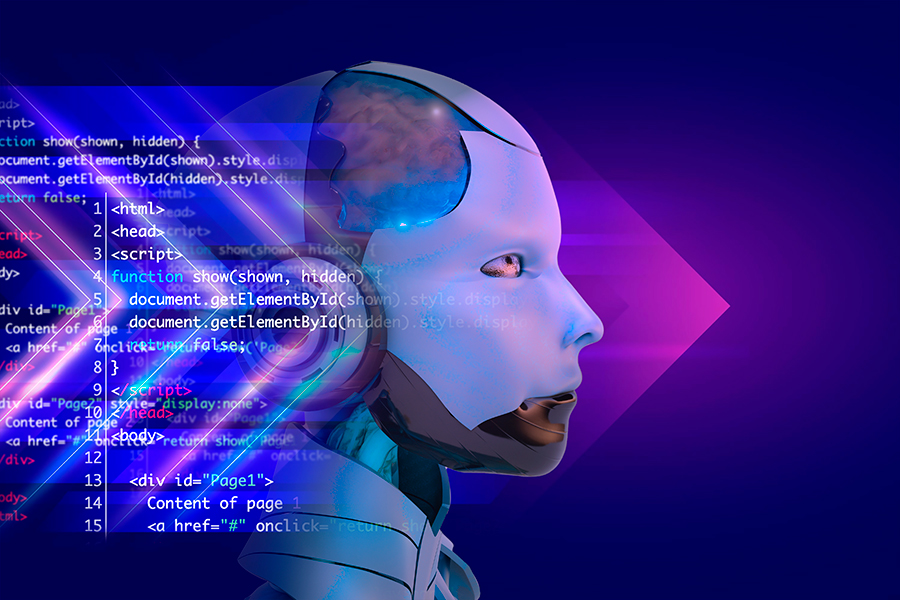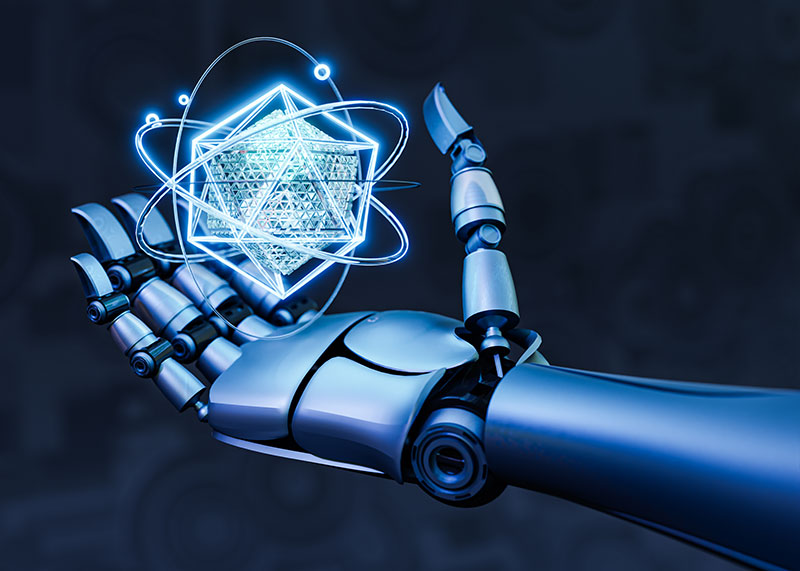
The technological environment surrounding web development has undergone tremendous evolution over the last decade. This rapid transformation, spurred by advancements in various domains, has set the stage for a future where web development is poised to become more sophisticated, efficient, and integrated than ever before. Among the key drivers of this evolution are Artificial Intelligence (AI) and quantum computing, both of which promise to revolutionize how we approach web development. This article delves into these emerging technologies and explores their potential impact on the industry.

Artificial Intelligence: Redefining Web Development
Artificial Intelligence has already started to make significant inroads into web development, providing tools and frameworks that enhance productivity and enable the creation of more intelligent, user-friendly websites. Here are some key ways AI is shaping the future of web development:
1. AI-Powered Design Tools
AI-powered design tools are transforming the way websites are created. These tools can automatically generate design elements, layouts, and even entire website templates based on user preferences and inputs. For instance, platforms like Adobe Sensei and Figma’s AI-driven features allow designers to streamline their workflow by automating repetitive tasks, enabling them to focus on creativity and innovation.
2. Chatbots and Virtual Assistants
The integration of AI-driven chatbots and virtual assistants into websites is enhancing user engagement and customer service. These bots can handle inquiries, provide recommendations, and perform various tasks 24/7, offering a seamless user experience. With advancements in natural language processing (NLP), these virtual assistants are becoming more intuitive and capable of understanding and responding to complex user queries.
3. Personalization and Predictive Analytics
AI enables highly personalized user experiences by analyzing user behavior, preferences, and interactions. Predictive analytics can forecast user needs and tailor content accordingly, resulting in more relevant and engaging websites. E-commerce platforms, for example, leverage AI to recommend products based on past purchases and browsing history, significantly enhancing user satisfaction and conversion rates.
4. Enhanced Security
AI is playing a critical role in enhancing web security. Machine learning algorithms can detect and respond to potential security threats in real-time, identifying patterns that may indicate malicious activity. This proactive approach to security helps in mitigating risks and safeguarding user data, which is paramount in the digital age.

Quantum Computing: A New Frontier
Quantum computing, although still in its nascent stages, holds immense potential to revolutionize web development. By harnessing the principles of quantum mechanics, quantum computers can process information at unprecedented speeds, solving complex problems that are currently infeasible for classical computers. Here’s how quantum computing might impact web development:
1. Accelerated Processing Speeds
Quantum computers can perform computations at speeds exponentially faster than today’s classical computers. This acceleration can significantly reduce the time required for data processing tasks, such as encryption, decryption, and database querying. For web developers, this means faster website performance and the ability to handle more complex applications with ease.
2. Enhanced Cryptography
Quantum computing poses both a challenge and an opportunity for web security. While it has the potential to break current cryptographic algorithms, it also offers the possibility of developing quantum-resistant encryption methods. Web developers will need to stay ahead of these advancements to ensure data remains secure in a quantum computing era.
3. Improved Algorithms and Simulations
Quantum computing can enhance the development of algorithms and simulations, providing more accurate models and predictions. This capability can be particularly beneficial for developing complex web applications that rely on large-scale data analysis and machine learning. Developers can create more efficient algorithms, leading to better performance and user experiences.

The Convergence of AI and Quantum Computing
The convergence of AI and quantum computing is expected to create a synergistic effect, amplifying the capabilities of web development. Here’s how this convergence might unfold:
1. Quantum-Enhanced AI
Quantum computing can significantly boost the capabilities of AI by enabling the processing of vast datasets more efficiently. This enhancement can lead to the development of more advanced AI models, which can, in turn, be applied to web development tasks such as predictive analytics, personalization, and security.
2. AI-Driven Quantum Algorithms
AI can assist in the development of quantum algorithms by identifying patterns and solutions that might be challenging to discern through traditional methods. This collaboration can accelerate the progress of quantum computing and make its benefits more accessible to web developers.
3. Intelligent Quantum Networks
The integration of AI with quantum networks can lead to the creation of intelligent, self-optimizing web infrastructures. These networks can dynamically adjust to changing conditions, ensuring optimal performance and reliability. For web developers, this means more resilient and adaptable web architectures.

Other Emerging Technologies to Watch
While AI and quantum computing are at the forefront, several other emerging technologies are poised to impact web development:
1. Progressive Web Apps (PWAs)
Progressive Web Apps combine the best of web and mobile applications, offering offline capabilities, fast load times, and a native app-like experience. PWAs are gaining popularity due to their ability to provide a seamless user experience across different devices and platforms.
2. WebAssembly
WebAssembly (Wasm) is a binary instruction format that enables high-performance execution of code on web pages. It allows developers to run code written in multiple languages, such as C, C++, and Rust, at near-native speed. This capability can significantly enhance the performance of web applications, particularly those requiring intensive computations.
3. Blockchain
Blockchain technology, known for its decentralized and secure nature, is finding applications in web development. From enhancing security and transparency to enabling decentralized applications (dApps), blockchain has the potential to transform various aspects of web development. Developers can leverage blockchain to create more secure and tamper-proof applications, particularly in sectors like finance, supply chain, and healthcare.
4. Augmented Reality (AR) and Virtual Reality (VR)
AR and VR technologies are making their way into web development, offering immersive and interactive experiences. These technologies can be used to create engaging e-commerce platforms, virtual tours, and interactive learning environments. As AR and VR become more accessible, their integration into web applications will likely become more prevalent.

Preparing for the Future
The rapid pace of technological advancement necessitates that web developers stay abreast of emerging trends and continuously upgrade their skills. Here are some strategies to prepare for the future of web development:
1. Continuous Learning
Web developers should invest in continuous learning to stay updated with the latest technologies and frameworks. Online courses, workshops, and certifications can provide valuable insights and hands-on experience with emerging tools and technologies.
2. Collaboration and Networking
Engaging with the developer community through forums, conferences, and social media can foster collaboration and knowledge sharing. Networking with peers and industry experts can provide fresh perspectives and keep developers informed about the latest trends and best practices.
3. Experimentation and Innovation
Embracing a culture of experimentation and innovation can lead to the discovery of new solutions and techniques. Developers should be encouraged to explore new technologies, experiment with different approaches, and push the boundaries of what’s possible.
Conclusion
The future of web development is undeniably exciting, with emerging technologies like AI and quantum computing set to transform the landscape. These advancements will enable developers to create more intelligent, efficient, and secure web applications, ultimately enhancing the user experience. By staying informed, embracing continuous learning, and fostering a spirit of innovation, web developers can navigate this evolving landscape and harness the full potential of these groundbreaking technologies.

0 Comments